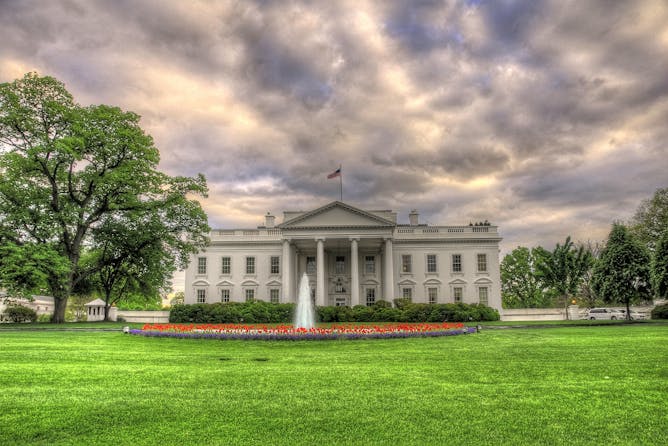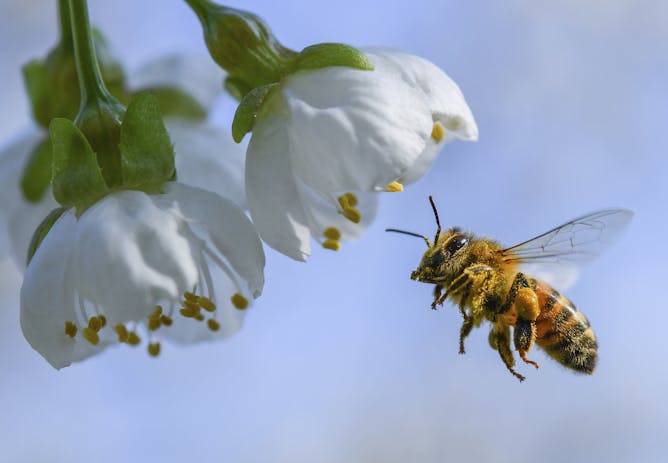Editor's note
|
|
That big sigh of relief you may have heard recently? It was some members of the scientific community reacting to news that President Trump was nominating Kelvin Droegemeier to be his first science adviser. Optimists were ready to see a respected scientist take an official role in a White House that’s been somewhere between apathetic and hostile toward science. But professor of science and society Daniel Sarewitz writes that history shows this advisory position is much more political than it is scientific.
Honey bees have faced a range of threats in recent years, from pests and disease to pesticide exposure. Paradoxically, California almonds could pose a problem as well. That’s because even as almond growers depend on bees to pollinate their trees each year, the beekeepers who raise them rely on the lucrative – yet vulnerable – income they get in return to stay afloat, explains economist Brittney Goodrich. To celebrate World Honey Bee Day, she offers a primer on the economics of beekeeping.
And Richard Gunderman, chancellor’s professor of medicine at Indiana University, examines how different cultures deal with people who suffer from dementia, a disease for which more than 16 million people in the U.S. provide care. He writes about an approach to dementia that “seizes on it as an opportunity to draw together around a loved one in need, giving family members not a secret to keep but an opportunity to care.”
|
Maggie Villiger
Science + Technology Editor
|

|
|
Top stories
|

It’s a political job, not a scientific one.
slack12
Daniel Sarewitz, Arizona State University
Nineteen months in, Trump has nominated a candidate to fill the empty science adviser position. History demonstrates that the role is at least as political as it is scientific.
|

A honey bee sniffs a cherry blossom.
AP Photo/Patrick Pleul
Brittney Goodrich, Auburn University
Pollination by commercially raised bees is important to a variety of crops but none more than California almonds. In turn, beekeepers depend on them.
|

Other cultures view dementia differently. Could they help us be better caregivers?
BlurryMe/Shutterstock.com
Richard Gunderman, Indiana University; Lily Wolf, Indiana University School of Medicine
More than 16 million people in the U.S. take care of people with dementia. Could we learn something from how other cultures view dementia as more of a social disease rather than a lonely one?
|
|
|
|
|
|
|
Politics + Society
|
-
Joseph Graf, American University School of Communication
Trump despises the media and says it's a threat to the American people. Yet the White House's daily newsletter scours the US to find good press, touting even tiny bits of praise from local newspapers.
-
Susan Appe, University at Albany, State University of New York; Ayelet Oreg, Binghamton University, State University of New York
On top of boosting South Sudan's development, these groups are showcasing what refugees can accomplish in the US.
|
|
|
|
From our International Editions
|
-
Leah Kardos, Kingston University
Aretha Franklin, the 'Queen of Soul', was the first woman to be inducted into the Rock and Roll Hall of Fame.
-
Candice Louw, University of Johannesburg
Steel roller coasters remain hugely popular. But virtual reality is becoming an increasingly important addition to the industry.
-
Erika Dyck, University of Saskatchewan
Once associated with mind-control experiments and counter-cultural defiance, psychedelics now show great promise for mental health treatments and may prompt a re-evaluation of the scientific method.
|
|
|
|
| |
| |
|
|